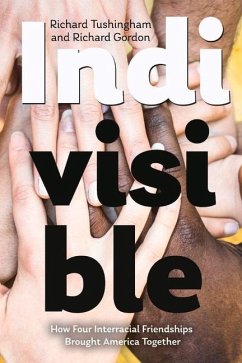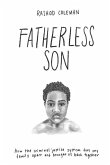With a national perspective, we can disclaim and condemn racism. We can dispute and debate its roots and causes, We can even march and protest. But as we see it as an "issue," we depersonalize it. Rather than sensing how race touches each of us, we intellectualize the considerable difficulties of race relations. We come to believe that any solution to such a large national problem must itself be national and outsized. With that perspective, we can be persuaded by those who argue that America's racial divide is intractable. But what if we shift our focus on race relations from the national to the personal? What if we move beyond the large stories of racial injustice in America to small stories of specific human relationships.? When one black person connects with one white person, they can create a deep personal bond. When we shift our attentions to the individual, the immediate, and the personal, can't we arrive at a different racial finish line than the racial defeatists? Can't we find hope? Indivisible tells four nonfiction stories with that small emphasis, stories of one to one black and white human relationships. Quite simply, these are love stories. They are evidence that blacks and whites have done far better than coexist in a perpetual state of racial distance and divide. As the very many American stories of racial discrimination and oppression have shaped our perceptions of the racial divide, can't equally authentic stories of black and white friendship amend, at least partially, our understanding of racial division?
Hinweis: Dieser Artikel kann nur an eine deutsche Lieferadresse ausgeliefert werden.
Hinweis: Dieser Artikel kann nur an eine deutsche Lieferadresse ausgeliefert werden.








